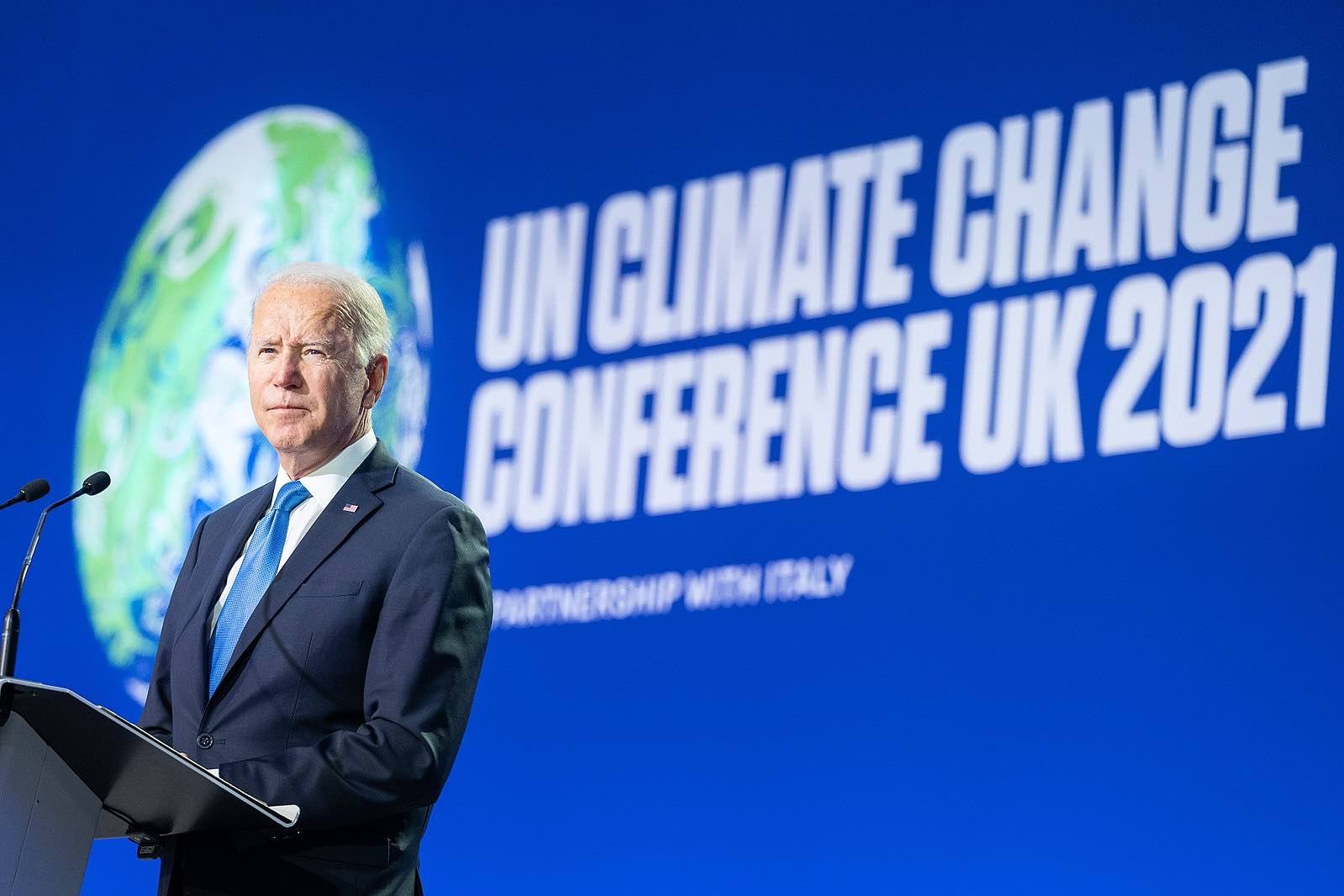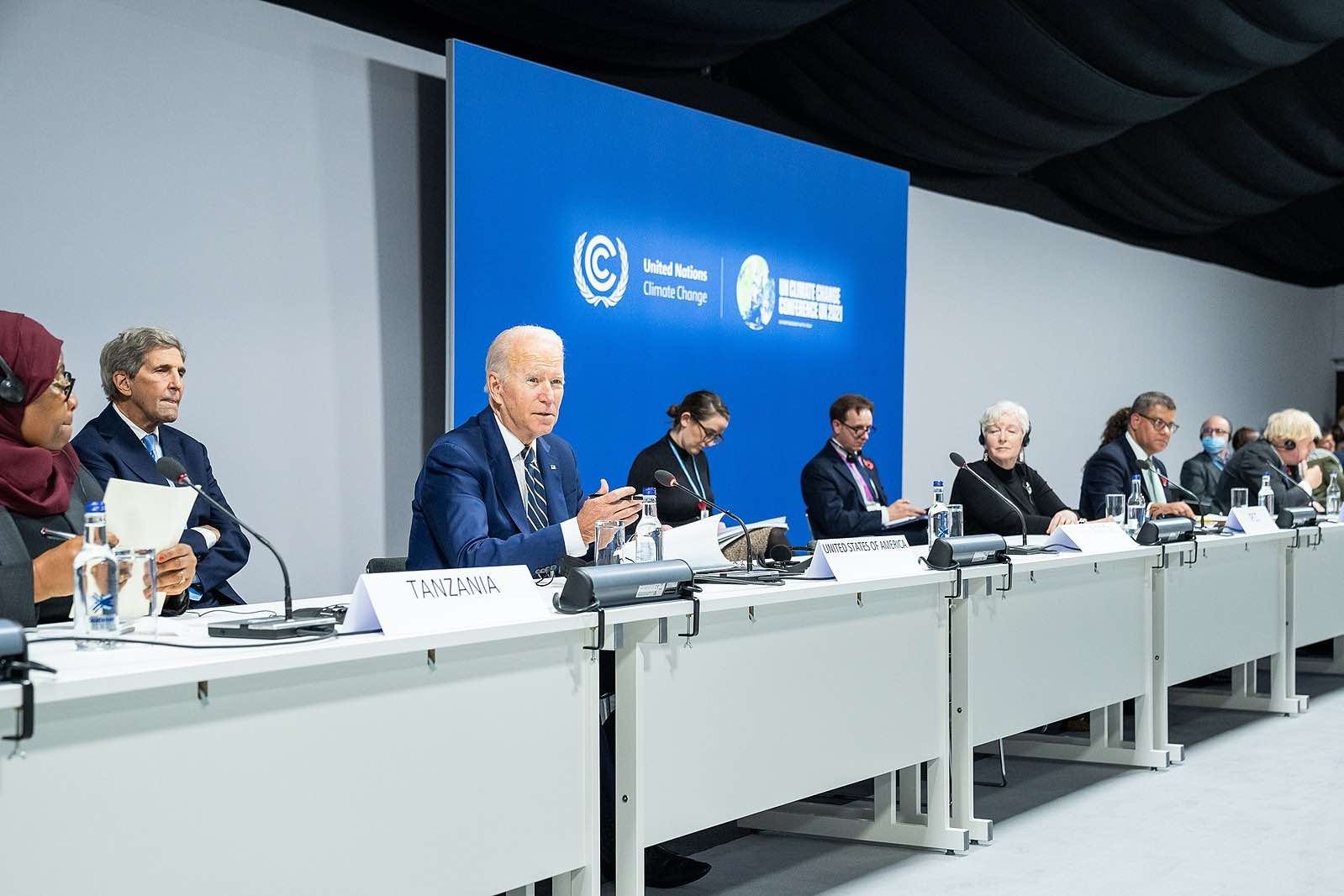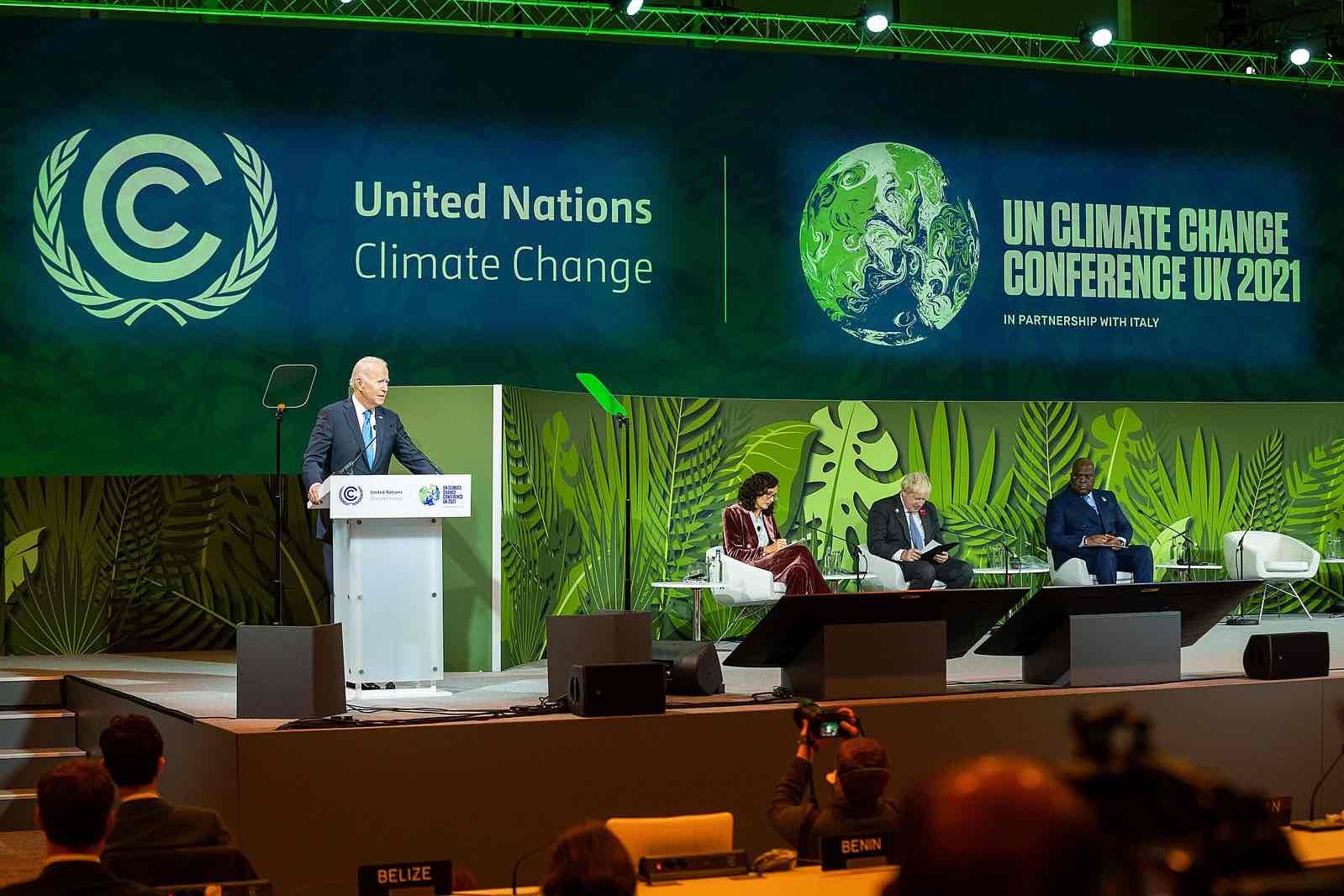

Welcome to this week’s installment of The Intelligence Brief… as the summer heat ensues, this week we turn our focus toward the Biden Administration’s recent executive steps toward curbing the effects of climate change. Items in our analysis this week include 1) Wednesday’s announcement by President Biden on climate change, 2) key points the administration outlined in its plan, and 3) what Americans think about the federal government’s actions related to climate change and why the DOD considers it a threat to national security.
Quote of the Week
“Preservation of our environment is not a liberal or conservative challenge, it’s common sense.”
-Ronald Reagan
Before we dive into things, a few stories we’ve been reporting at The Debrief in recent days include the story of how a discovery that builds on the famous “double slit” experiment has led to a surprising breakthrough in physics. Also, John Muldowney reports on why MDMA-assisted therapy may one day prove to be valuable for helping trauma survivors recover from their PTSD. Elsewhere, Tim McMillan reports on a bizarre series of events involving Russia’s FSB stealing a car from the Russian military that was originally stolen from Ukraine.
Also, be sure to check out all the latest videos from The Debrief on our official YouTube channel, where you’ll find recent episodes of Rebelliously Curious with our own Chrissy Newton, and much more. And as always, you’ll find a complete roundup of all our latest articles at the conclusion of this newsletter.
And with all that behind us, we now look ahead at the Biden Administration’s latest efforts to fight growing concerns over climate change.
President Biden Announces Executive Steps to Fight Climate Change
On Wednesday, President Joe Biden announced a set of executive steps aimed at combatting climate change, although without an official climate emergency declaration that many in Washington have pressed for in recent days.
“Since Congress is not acting on this emergency, President Biden will,” read a portion of a Fact Sheet issued by the White House. “In the coming weeks, President Biden will announce additional executive actions to combat this emergency,” the statement read.
The President made the announcements in Brayton Point, Massachusetts, at a former coal-fired power plant to signal the Biden Administration’s intentions to steer America’s energy systems toward cleaner, more renewable resources, including “the flourishing offshore wind industry” and in an effort to curb “pollution, environmental injustice, and volatile price swings” presently affecting the nation.
The executive steps were announced just one day before it was learned that Biden tested positive for the coronavirus. Presently, the President’s symptoms are mild, according to a statement from the White House press secretary, although concerns remained about the 79-year-old President contracting the virus, who is currently being administered the anti-viral drug Paxlovid to help reduce symptoms.
Plans for Combatting Climate Change
The executive steps outlined on Wednesday included provisions to provide a sum of $2.3 billion toward community disaster preparedness programs, with focus on flood control, improvement of buildings, and financial aid to low-income families facing high costs of heating and air conditioning.
This, along with directions outlined in Biden’s plan that task the Department of the Interior with the future implementation of offshore wind areas in the Gulf of Mexico that could produce enough energy to power as many as 3 million homes.
Other key areas in Biden’s plan include:
- Aims to protect communities from extreme heat and dangerous climate impacts
- Lower cooling costs for communities
- Expansions of jobs related to offshore wind industries
- Provision of funding to increase community resilience
- Programs to expand access to air conditioning, especially for low-income families
“These actions follow the President’s announcement last month of a new Federal-State Offshore Wind Implementation Partnership,” the White House statement read, “joining with Governors to ensure that federal and state officials are working together to build a U.S.-based supply chain, including manufacturing and shipbuilding, for the rapidly-growing offshore wind industry.”


Speaking on background in advance of Biden’s appearance in Massachussetts, a senior administration official that briefed the press on Wednesday called the executive steps “an opportunity for the President,” which would allow Biden “to just come out and provide his take on where we are on climate — on the urgency, on the opportunity.”
Citing a written statement issued to Congress by the President last week, the official said Wednesday’s announcement was “an opportunity for him to also speak to that,” and that the President would likely speak to his intentions to “use his executive powers to combat the climate crisis in the absence of additional congressional action.”
Divided Americans, National Security, and Climate Change
Biden’s announcement on Wednesday came in the wake of recent polls indicating division among American voters over the administration’s climate policies. However, despite a clear partisan divide on many of the President’s climate policies, a majority of Americans seem to feel that more should be done to combat Earth’s changing climate, and the extreme weather events it produces.
“While the public is divided over Biden’s approach to climate change, a majority of Americans continue to see room for more federal action on the issue,” read a Pew Research Center report issued last week. According to polls, well over half (58%) of those participating indicated concerns that the federal government is not doing enough to combat climate change and its global effects. 22% said the U.S. government is doing enough, while just 18% expressed the view that it is doing too much to try and curb climate change.
The report also said that close to 70% of those participating indicated extreme weather events had affected their communities in the last twelve months. Also, despite rising gasoline prices seen in recent months, slightly more than half (55%) opposed attempts to phase out gasoline automobiles before 2035.


In recent years, the Department of Defense has also cited the effects of climate change globally as “a national security issue with potential impacts to Department of Defense… missions, operational plans, and installations.” In 2021, a Climate Risk Analysis said climate change is fundamentally “reshaping the geostrategic, operational, and tactical environments with significant implications for U.S. national security and defense.”
“President Biden will not back down from addressing this emergency,” Wednesday’s White House statement read. “Since taking office, he has mobilized his entire Administration to tackle the climate crisis and secured historic clean energy and climate resilience investments in his Bipartisan Infrastructure Law.”
“He will continue taking bold action to secure a safe, healthy, clean energy future—all while saving families money, delivering clean air and water, advancing environmental justice, and boosting American manufacturing and competitiveness,” the White House said.
That concludes this week’s installment of The Intelligence Brief. You can read past editions of The Intelligence Brief at our website, or if you found this installment online, don’t forget to subscribe and get future email editions from us here. Also, if you have a tip or other information you’d like to send along directly to me, you can email me at micah [@] thedebrief [dot] org, or Tweet at me @MicahHanks.


Here are the top stories we’re covering right now…
- A Newly Discovered Dinosaur Could Explain the Advantage of Having Tiny Arms
Researchers have discovered a new dinosaur, Meraxes gigas, that may help answer the question of why some large dinosaurs had tiny arms.
- The First Bits of the Cosmos Caught in Webb’s Web
Could new data being obtained by the James Webb Space Telescope confirm past forecasts about our universe?
- Could Inosine be the Miracle Cure for Weight Loss?
Researchers say a molecule called inosine may trigger the brown fat cell-burning process in a new study that could revolutionize weight loss.
- “Impossible” Neutron Breakthrough is Made, Building on Famous Double-Slit Experiment
A physics first in neutron interferometry that builds on the famous “double slit” experiment has led to a surprising breakthrough.
- Space Dust Gives Asteroids a Rough Appearance, Latest Studies of Asteroid Bennu Show
Asteroids provide an extremely important resource for astronomers, which includes the way they help to unravel clues about planetary origins.
- MDMA Could Be the Next Big Thing in Trauma Treatment, Research Suggests
MDMA-assisted therapy may one day prove to be valuable for helping trauma survivors recover from their PTSD.
- Deep Learning “Ice Breaker” Missile Finally Revealed
Air, land, and sea-launch-able, the fully autonomous, AI-controlled missile known as the Ice Breaker has finally been revealed.
- Could Artificial Blood Actually Help with the Blood Shortage Crisis?
Artificial blood is a novel potential solution to the current blood shortage crisis occurring across the U.S.
- The James Webb Space Telescope is Already Changing How We See the Universe
This week in our analysis we’ll be looking at what the James Webb Space Telescope is already revealing about our universe.
- How 3D-Printed Robotic Ammonites are Helping Bring Ancient Fossils to Life
Using 3D-printed robotic ammonites, researchers from the University of Utah were able to learn more about how these ancient animals moved.
- Looking to the Skies, Astronomers Assemble the New Eyes and Brain of the Galileo Project
The new telescopes of the Galileo Project provide a unique observatory with innovative capabilities. What will they help us learn about UAP?
- Missing X-Rays in Black Hole Mystery May Be Explained in New Study of “Spaghettified” Star
Astronomers witnessed the shredding of a star by a supermassive black hole that “spaghettified” it in an event 215 million light-years away.
- Death by Space Junk? Concerning Report Warns That the Risk is Higher Than You Think
A new report says that there is a six to 10 percent chance space junk will seriously injure or kill someone on Earth in the next decade.
- Fleeced and Furious: Russia’s FSB Steals Car from Russian Military, First Stolen From Ukraine
In a bizarre series of events, Russia’s FSB steals a car from the Russian military that was originally stolen from Ukraine.
- A Sustainable Lunar Outpost Could Become a Reality With Help From This Company
NASA is working with AI SpaceFactory, a deep tech company, to develop a lunar outpost printed with recycled materials.